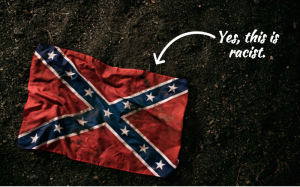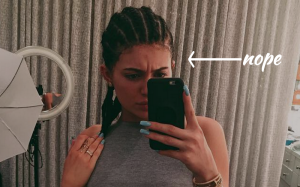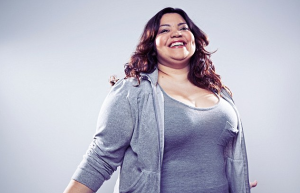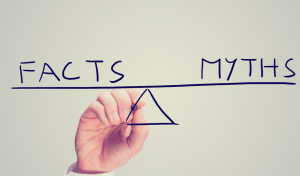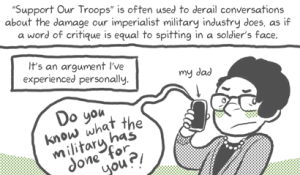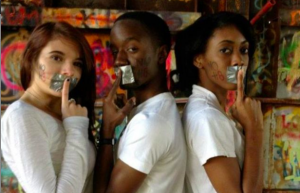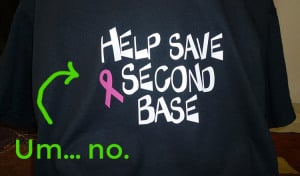
A portrait of Amber Heard in formal attire. Source: Wikipedia
(Content Warning: intimate partner violence, victim-blaming)
Usually I consider pop culture my fun guilty pleasure. But this is one of those moments when pop culture meets issues of violence that affect us regular non-famous folk every day, and shit gets serious.
News recently broke that actress Amber Heard filed a restraining order against actor Johnny Depp, alleging in divorce proceedings that he was physically abusive.
And already, all of the typical victim-blaming, victim-doubting comments are rolling in.
“I don’t know if I believe this.”
“She’s probably just doing this for his money.”
The thing is, we’re talking about the personal lives of people we only see in magazines and the movies. None of us know the truth about what happened between them. So you might see expressing doubt as harmless.
But with the world watching, details unfolding via TMZ, gossip hounds scrambling to tracking down anyone who’s delivered food to the couple and might be able to deliver some flimsy account of what went down in their home, we can’t forget about survivors.
Thousands of survivors are listening to the public’s response. It’s likely that someone you know is a survivor, and they’re listening to your response.
There are people trapped in relationships with abusive partners right now who are listening to our responses.
Some of them can relate to Amber Heard. Their abuser is their partner – the partner everyone thought treated the survivor so well. Their abuser is well-liked – someone others “could never imagine” to be violent.
It’s important that we believe survivors – and yes, that includes celebrities. But even if you can’t get on board with “taking a side” in a case as public as this, remember that there are a hell of a lot of survivors who aren’t in the public eye.
They need us to believe them, too.
Here are some reminders of what not to say when intimate partner violence is in the media – with articles from our writers that will fill you in on exactly why these phrases are so harmful.
1. ‘Why Didn’t the Survivor Just Leave?’
One of the most damaging myths about intimate partner violence is that survivors can “just leave” when things get violent.
That’s simply not how intimate partner violence works – and there are a number of reasons why a survivor might not be able to get away from their partner.
Carmen Rios gives a clear answer to the question of why a survivor doesn’t leave: “Because survivors can’t make abusive behavior go away, and it shouldn’t be their responsibility to try to make it stop.”
Read More:
- Stop Asking Already: 6 Reasons Why Intimate Partner Violence Survivors Stay in Their Relationships
- Here’s Why I Stayed With An Abusive Partner for 11 Years
And if you’re currently with an abusive partner and you’re not ready to leave, read: 3 Ways to Keep Yourself Safe When You’re Not Ready to Leave Your Abusive Partner
2. ‘Why Didn’t the Survivor Call Police?’
In many cases, partner abuse goes on for a long time before the police are ever involved. In many other cases, the police are never involved at all.
And some people point to this as evidence that the abuse never really happened. You wonder, “If someone is violent with you, wouldn’t you just call police?”
But “just calling the police” is a nightmare situation for many survivors.
Look at all of the doubt being cast on Amber Heard right now – and remember that this is the status quo response to survivors in many situations. Many police officers may respond with the same doubt.
Plus, survivors who are queer, trans, gender non-conforming, people of color, and men – just to name a few examples – could face the risk of police officers treating them like the perpetrator.
Read More:
- 5 Reasons Shaming Survivors Into Reporting Rape is Counter-Productive (Many of these reasons can also apply to intimate partner violence survivors)
- Family Violence Doesn’t Discriminate – But Biased Systems Do
- ‘Don’t Make Us Look Bad:’ The Invisibility of LGBTQIA+ Intimate Partner Violence
- Here’s Why We Need Restorative Justice As an Option for Dealing with Abuse
3. ‘I Just Don’t Believe the Abuser Would Do Something Like This’
Look, Johnny Depp has been sending my queer little heart aflutter for years. I understand it can be shocking for someone you have a crush on to be accused of violence.
But no amount of butterflies, attractiveness, admiration, money, fame, or anything else should keep us from believing a survivor just because their abuser doesn’t fit our idea of what an abuser “looks like.”
You don’t know a celebrity well enough to know if they’re abusing their partner – unless you happen to be their partner.
And when you express that you think a celebrity couldn’t possibly do something like this, the survivors in your life hear that you could feel the same about their abusive partner or former partners.
If you think you can judge a person’s capacity for abuse from afar, that probably means you believe some myths about how abuse works – so read on.
Read More:
- 6 Awful Things That Happen When We Think ‘Good’ People Can’t Be Rapists or Abusers
- How to Recognize and Respond to Intimate Partner Violence
4. ‘The Survivor Should’ve Done Things Differently’
As a survivor and someone who’s done a lot of work with survivors, I can assure you that you wouldn’t be the only one thinking that the survivor should’ve done things differently.
Going through intimate partner violence leads you to heap plenty of blame on yourself.
Don’t say things like “Well, why didn’t he fight back?” or “I’d be more inclined to believe this if she’d said something sooner.”
That only adds to a survivor’s cycle of self-blame – and sends the message that they “deserved” to be abused because they did something wrong.
The truth is, the person who knows best how to survive a violent situation is the survivor themselves. They do what they have to do to get through it, and we should admire them for that – not judge them.
Read More:
- How to Help a Loved One Who’s Being Abused By Their Partner
- 11 Truths Every Survivor of Intimate Partner Violence Needs to Know
***
Learning more about the nature of intimate partner violence can only add to your awareness and understanding about what survivors are going through.
And once you have that, you’ll be able to add your voice to the support that survivors need so badly – and hopefully you’ll think twice before adding to the shame and judgment that society puts on them.
Following pop culture can be fun, but the media doesn’t exist in isolation from the struggles that everyday people are experiencing. It can actually add to those struggles – and you can add to them too if you’re not thoughtful about how you engage with the media.
Right now, my thoughts are with Amber, and with the many other survivors who are facing doubt, blame, and judgment as the rest of the world consumes our stories.
I know how that feels. And nobody else should have to go down that terrible road.
[do_widget id=’text-101′]
Maisha Z. Johnson is the Digital Content Associate and Staff Writer of Everyday Feminism. You can find her writing at the intersections and shamelessly indulging in her obsession with pop culture around the web. Maisha’s past work includes Community United Against Violence (CUAV), the nation’s oldest LGBTQ anti-violence organization, and Fired Up!, a program of California Coalition for Women Prisoners. Through her own project, Inkblot Arts, Maisha taps into the creative arts and digital media to amplify the voices of those often silenced. Like her on Facebook or follow her on Twitter @mzjwords.
Search our 3000+ articles!
Read our articles about:
Our online racial justice training
Used by hundreds of universities, non-profits, and businesses.
Click to learn more
Most Read Articles
- « Previous
- 1
- …
- 30
- 31
- 32





